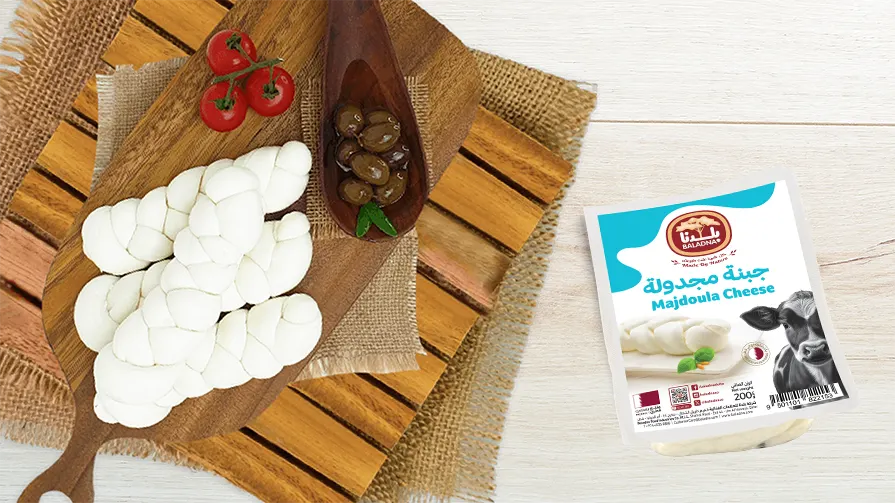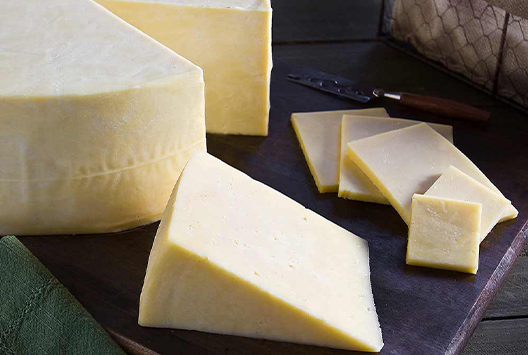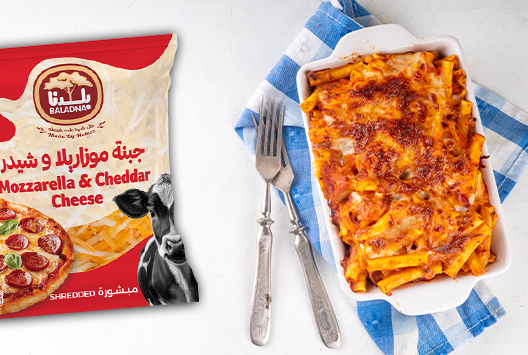
Majdoula Cheese: Perfect for Grilled Cheese
Similar
Majdoula cheese is a traditional Middle Eastern cheese with a distinctively braided shape, often compared to mozzarella for its semi-soft texture, yet it boasts a flavor profile that’s far more nuanced. Its name, “Majdoula,” comes from the Arabic word meaning "braided" or "twisted," referring to the way this cheese is shaped during production. Commonly enjoyed across Lebanon, Syria, and Jordan, this cheese is becoming increasingly popular worldwide.
What Makes Majdoula Cheese Special?
Majdoula cheese is typically made from sheep, cow, or goat milk, or a combination of these. The cheese has a slightly salty flavor, which develops through the process of being brined. Like many cheeses in the Middle East, Majdoula is soaked in salt water to preserve it and enhance its taste. The brining process also helps create its firm yet elastic texture, making it an ideal candidate for grilling.
This cheese is often served fresh, with olive oil and herbs, but its true magic shines when heated. When grilled, Majdoula develops a crispy, golden crust while maintaining a creamy, gooey interior. This dual texture makes it ideal for creating an unforgettable grilled cheese sandwich.
Why Majdoula Cheese is Perfect for Grilled Cheese
Grilled cheese is about balancing flavors and textures, and Majdoula’s salty, rich taste makes it an excellent match for the job. The cheese’s stringy nature, thanks to its braided structure, melts evenly when heated, creating that stretchy pull that everyone loves in a grilled cheese sandwich.
Here are a few reasons why Majdoula excels in a grilled cheese:
Melting Point: While some cheeses may melt too quickly or not enough, Majdoula has a perfect melting point. It melts slowly, allowing it to retain some structure while still becoming soft and creamy inside.
Texture: Its slightly firmer, fibrous texture before grilling contrasts beautifully with the soft, gooey consistency it takes on once melted.
Flavor: The briny and slightly tangy taste of Majdoula adds a rich layer of flavor to a grilled cheese that can elevate it beyond the usual cheddar or mozzarella.
How to Make a Majdoula Grilled Cheese
Making a grilled cheese with Majdoula is simple and rewarding. Here's a step-by-step guide to bring out the best of this cheese in your sandwich:
1. Choose your bread: Go for a rustic bread like sourdough or a good country loaf. The crunchier the crust, the better it will complement the creamy texture of the cheese.
2. Prepare the cheese: If your Majdoula cheese is fresh from the brine, give it a light rinse to remove excess salt. Slice or pull apart the braids to your desired thickness.
3. Add your favorite toppings: You can pair Majdoula with roasted vegetables like tomatoes or zucchini, or add some fresh herbs like thyme or oregano. If you prefer a more decadent option, drizzle some olive oil or even honey for a sweet-savory contrast.
4. Grill to perfection: Heat a pan with butter or olive oil on medium heat. Place the sandwich in the pan and let it cook slowly. Grill each side for 3-4 minutes or until golden brown and the cheese inside is melted.
And don’t forget to serve and enjoy!
If you love experimenting with cheeses or are just seeking a break from the usual grilled cheese, try Baladna Majdoula for your next meal. It’s a traditional cheese that adds both depth of flavor and a bit of culinary adventure to your plate.



